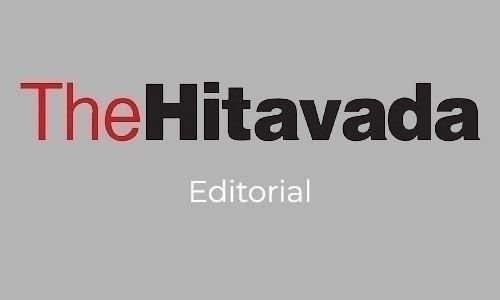Beyond Mere Symbolism - II
| Date :01-Oct-2022 |

By Vijay phanshikar
‘We must trust him -- as the head of the most important organisations in the country. During our meeting with him, he appeared open and sincere. His is possibly the most important Hindu voice. We must hear him and offer our opinion to him’.
- A gist of opinions of five Muslim intellectuals who sought a meeting with Dr. Mohan Bhagwat, the chief of the Rashtriya Swayamsevak Sangh (RSS), some time ago
THE positivism of this sentiment expressed by the five Muslim intellectuals is infectious, to say the least. Two of them had met Dr. Bhagwat earlier. Then came the meeting with group of five eminent persons -- politicians, military brass, bureaucrats. And they came away with a positive opinion -- that Dr. Mohan Bhagwat’s Muslim outreach is an honest attempt to achieve a rapprochement between the Hindu and Muslim communities. At this stage, when over-politicisation of the issue of communal harmony has caused severe damage to any possibility of rapprochement, such an attempt has its own importance. For, if Dr. Bhagwat -- and the RSS -- is engaged in a Muslim outreach, then well-meaning Muslim intellectuals, too, are doing more or less the same thing -- by approaching the RSS chief for a meeting.
Though it is preposterous to make any prediction about the outcome of such interaction, the very development is extremely positive and significant, to say the least. It promises to take forward the engagement between communities in whatever manner possible. In that effort, the first step is to keep a meaningful dialogue on.
Of course, there is a lobby each in both the communities that opposes any such effort. This lobby, on both sides of the divide, believes that no matter the talk of the common DNA, a rapprochement between Hindus and Muslims can never take place. And to support the conclusion, this lobby cites examples of how the Hindus behave and how the Muslims behave generally.
The short-sightedness of such a lobby is obvious. The members of this extremist lobby do not realise that their stance is actually, in effect, declaring that communal harmony is a stupid dream of some utopian thinkers. Such an extremism in thought is the first enemy of communal harmony in any society.
Why such an extremism has come about also can be understood if we analyse the background of the shallowness of the politico-secular discourse the country was made to face in the first few decades after Independence. Those who paid much lip service to secularism converted the thought into minorityism -- which in other words meant appeasement of the minorities. And that happened at the cost of the majority community’s interests. That approach actually spoiled the case for social harmony. That approach distorted the vision of both the communities.
The RSS appears to have identified these reasons as the root-cause of the current atmosphere of communal distrust in the country. Its Muslim outreach, therefore, appears as an attempt to go beyond the narrow confines of the current social discourse and chart a course of thought and action that would help create an atmosphere of open dialogue so that mutual misunderstandings can be addressed and solutions suggested.
The meeting which five Muslim intellectuals sought with Dr. Mohan Bhagwat in the month of August, therefore, assumes a special importance. All the five members of that delegation came away with an impression of positivism and openness. They felt that Dr. Bhagwat was seeking a genuine rapprochement that was beyond and besides politics.
When journalists asked incisive questions about the intentions of Dr. Bhagwat, the Muslim intellectuals responded positively, stating, in essence, that they had every reason to trust Dr. Bhagwat’s goodwill. They also acknowledged that Dr. Bhagwat heads a Hindu organisation that could be ranked as the largest in the world or at least in India. They did not pay much attention to the suggestion of a possible political angle to Dr. Bhagwat’s Muslim outreach. Instead, they felt that the RSS was making a sincere effort to extend a hand of friendship that could give rise to a better understanding between communities.
This impression is very important. For, in this impression lies concealed a possible Muslim response of opening a door of better possibilities for the future For, the members of the Muslim delegation reportedly agreed with Dr. Bhagwat’s assertion that all faiths led to one Truth though their methods may differ. Standing on the foundation of this belief, a rapprochement between communities could be possible, they felt -- in tune with Dr. Mohan Bhagwat’s idea.
Of course, the road ahead is too long and full of potholes and pitfalls. Yet, there appears no other way to establish an atmosphere of communal rapprochement in the country where the atmosphere has been muddied by intense but unnecessary mutual misunderstanding.